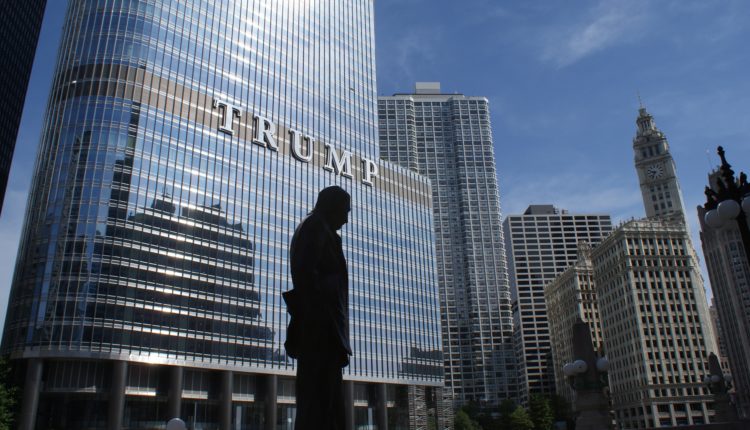 Photo by Carlos Herrero
Photo by Carlos Herrero
American Crisis
It is easy to miss the Crisis amid constant and ever-changing micro-crises of the moment, a signature feature of the Trump administration along with casual cruelty, a plethora of lies, and the insane attempt to make the laws of science and the will of nations conform to the “America First” Trump Doctrine.
Whosoever doesn’t sense how all this will end has never heard the word hubris or read a Greek tragedy. Yet the big Crisis is much more than the sum of all the small ones. Bigger than Trump. It didn’t start with him in 2016. The president just threw gas on a growing fire. A dastardly deed, but not the whole ball of crap.
The Crisis is many things at many levels. A Pennsylvania family flees the rustbelt for Sunbelt Arizona, rents a house and tries the facilities in their new home. The tap is dry. Soon they learn the same thing is happening to most of their neighbors.
Homeowners in a huge swath of California live in dread of wildfires that are getting larger and faster every year.
A whopping 96 percent of Americans are having trouble saving for retirement. Some people who retired years ago and thought they had saved enough are having trouble affording higher association fees at their retirement communities as a new crop of retirees loaded with money (resulting from the great tax giveaway to the rich over the last generation) and demanding costly new amenities move in.
Then there is a bigger picture. Life expectancy is dropping. Opioid deaths and maternal mortality are rising. The ocean is getting hotter and more devastating hurricanes are killing people and turning whole communities into piles of sticks. Controls are being relaxed on substances that kill people or threaten the life of the planet: asbestos, car emissions, coal, you name it. Inequality, already at a record high before Trump, is accelerating faster now because of Republican economic policies that comfort the comfortable and afflict the afflicted. The middle class is vanishing; in the absence of welfare, poverty is becoming destitution, and the very rich are buying more and better private planes, yachts, and even entire islands. The government’s consumer agency has stopped looking closely at how banks, predatory lenders, and credit card companies are dealing with military veterans, although the law requires the government to prevent veterans from becoming prey of fraudulent financial practices. Old diseases nearly vanquished are making a lethal comeback as irrational anti-science sentiment, starting at the top, spreads an aversion toward vaccines.
The great American Crisis is economic, social, moral, political, ethical, psychological and epidemiological. Almost all the indicators of trouble are spiking. Hate crimes. Suicide rates. The cost of health care. The cost of housing.
The symbol of middle class status, home ownership, is unattainable for more people. As for the poor, the government is not building public housing and rent subsidies are providing less and less of an alternative because landlords are taking advantage of rising rents to turn down people with Section 8 vouchers.
Optimists minimize all this and say that looking at the long run and on a global scale things have never been better. They need to adjust their GPS devices, their calendars and their clocks and land right here in the U.S. of A. in 2018. Sure, there have been really bad times before, especially the Civil War. But the country also had Abraham Lincoln to lead it, not Donald Trump to mislead it. The Civil War was a bloody interruption of the process of transformational industrialization and economic growth rather than its swan song. Vietnam was a horror but it produced an eventually successful resistance and was accompanied by brisk economic growth and the civil rights movement.
The distinct thing about this Crisis is how many things are going wrong at the same time and how few are going right. Sure, the President and House Speaker Paul Ryan can boast about all the good things they have accomplished. Yes, the stock market has hit record highs. But the vast majority of Americans don’t own a significant number of stocks so they haven’t benefitted: stock ownership is concentrated in the hands of very few, very rich people. Yes, unemployment is very low, but so are wages. Workers have yet to catch up economically with their situation in 2008, both in terms of income and net worth. The bulk of economic growth, not very high by historical standards, has gone into the pockets of employers and not employees.
There is a lot more, of course. Bigotry, racial division and conflict. Sexism normalized. Police-on-unarmed-civilian violence resulting in death and impunity. A grotesque swelling in the military budget and a steady consumption of the social budget. But I am piling on.
Worse than the gigantic challenge posed by the Crisis is the lack of vision, the lack of courage, and the absence of an unerring moral compass, among what passes for the country’s leadership, that is needed to overcome it. There is no better example of this vacuum than the process and the result of the most recent appointment to the Supreme Court of the United States.


